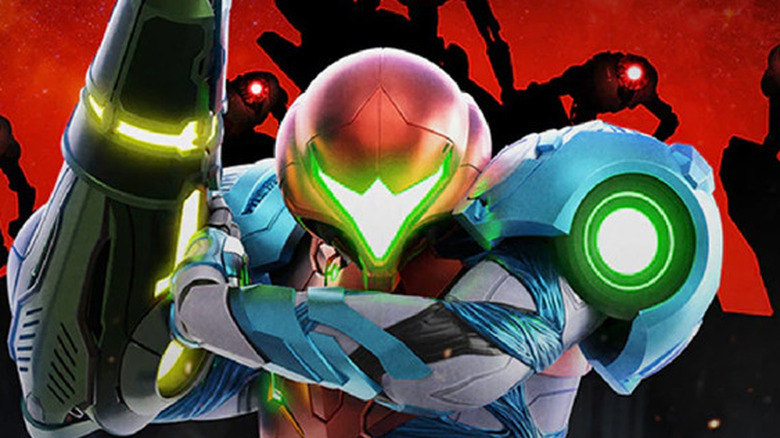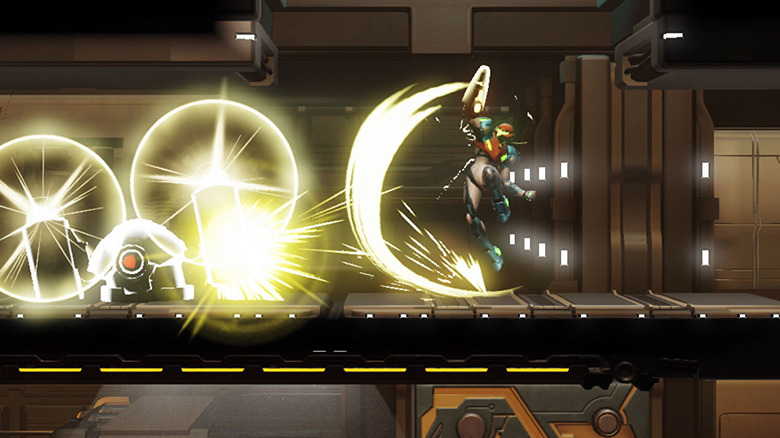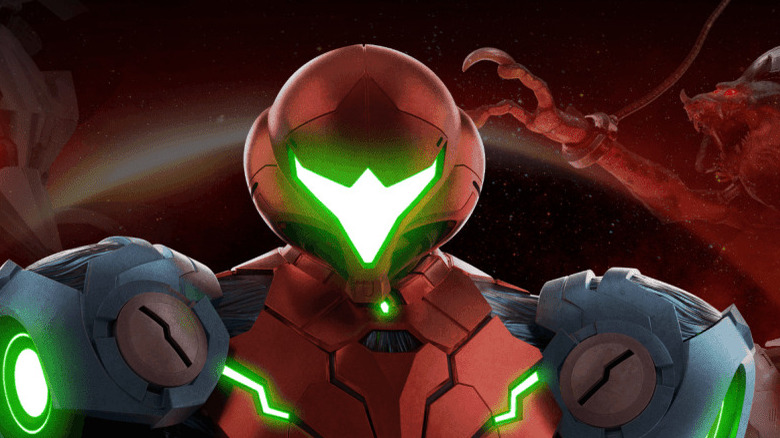Metroid Dread's Credits Are Causing An Uproar
Since its release, "Metroid Dread" has been warmly received by critics and has satisfied gamers with its classic side-scrolling gameplay and excellent visuals. However, the game has also been an issue for Nintendo, the game's publisher. On just the first day of its release, things weren't looking good for the title, as it had been cracked by two separate emulators, giving a clear pathway for gamers to play the newest installment in the "Metroid" series free of charge. To make matters worse, issues have arisen about developers allegedly being omitted from the game's credits.
The development of "Metroid Dread" has gone on for longer than most fans realize. Not only was the production of the game canceled twice due to a lack of technology, but the development also had to be completely re-done from scratch, leaving the game's development in limbo until it resumed proper. Despite the tedious process in bringing the game to life, "Metroid Dread" was released to much fanfare on October 8.
After having such an arduous process in even bringing the game to life, it seems Nintendo's struggles with "Metroid Dread" are just beginning as several people on its development team have criticized the company for not being given their credit in helping design such a successful game.
Several developers have allegedly been omitted from Metroid Dread's credits
Recently, 3D artist Roberto Mejías made a post on LinkedIn, congratulating the team at MercurySteam for completing their work on "Metroid Dread" and it being a success. In the same post, Mejías also expressed disappointment in not being listed in the game's credits, despite working on the game for a prolonged period of time. "I would like to sincerely congratulate the Metroid Dread team for putting out such an outstanding game," Mejías wrote. "I'm not surprised of the quality of the game though, since the amount of talent on that team was through the roof. I know this first hand because, despite not being included on the game's credits, I was part of that team for eight months."
Mejías went on to say that he recognized some of the assets he helped create in the game, before tagging MercurySteam and asking why he wasn't included in the game's ending credits. Apparently, he's not the only one.
Tania Peñaranda, a cinematic animator, made a post of her own on LinkedIn. She explained, "I am also very proud of the whole team! But it also saddens me to see that I am not reflected in the credits for this work that I did." According to Peñaranda, animations that she personally designed are present in the game. MercurySteam eventually addressed the allegations, and its answer isn't what fans expected.
MercurySteam's response
A third and fourth developer — who both chose to remain anonymous — told Spanish website Vandal that their work had been uncredited as well (translation via Eurogamer). After reaching out for comment, Vandal was told by MercurySteam that in order to be listed in the credits, a developer must work on the game for "25% or more of [its] development time." One of the anonymous sources speaking to Vandal said that this practice is "common in all studios" and that developers being left uncredited isn't uncommon. This was of no comfort to Mejías, whose eight months spent on "Metroid Dread's" alleged three-year development is one month short of the required time to be listed in the credits, claiming it to be MercurySteam "covering their backs".
Even though the practice of leaving out developers' names isn't uncommon, it's becoming a more frequently discussed issue in the gaming community. Titles like Arkane Studios' "Deathloop" have recently been accused of leaving out developers' names from the credits, leading fans to question whether or not the practice is ethical.



